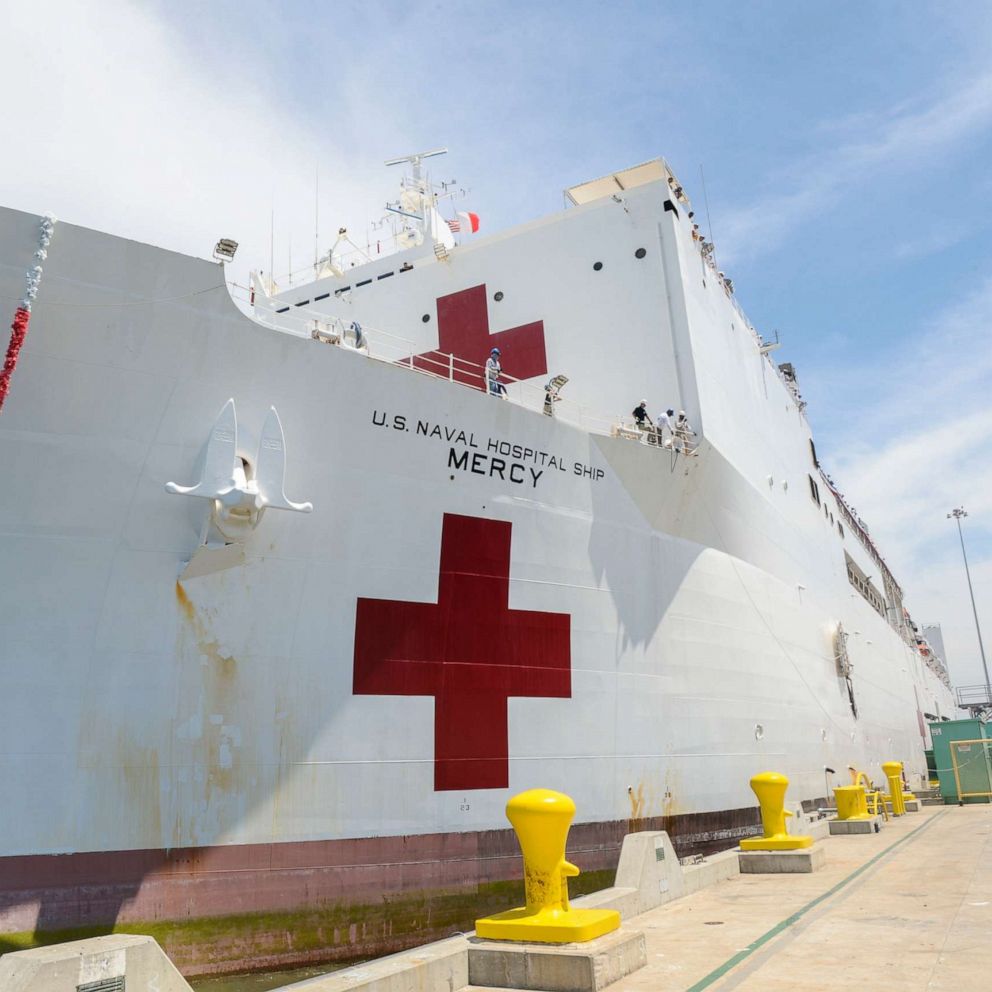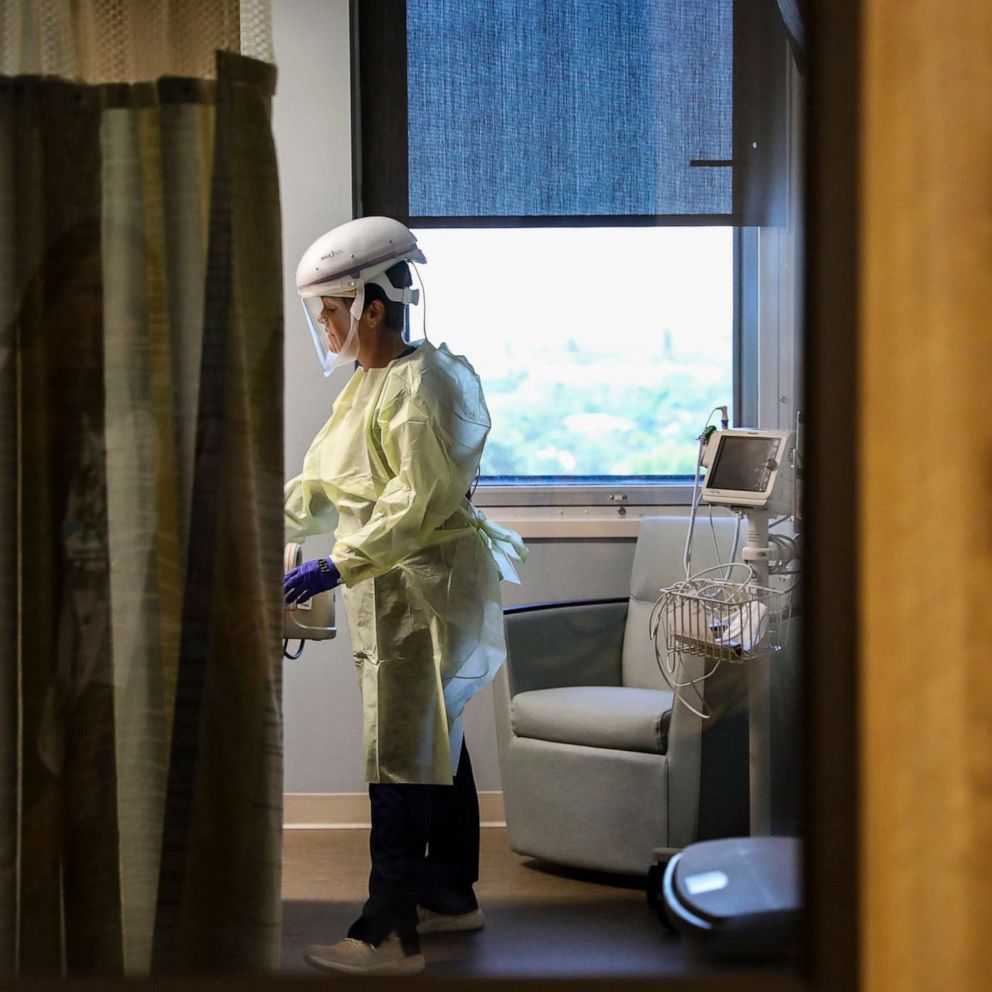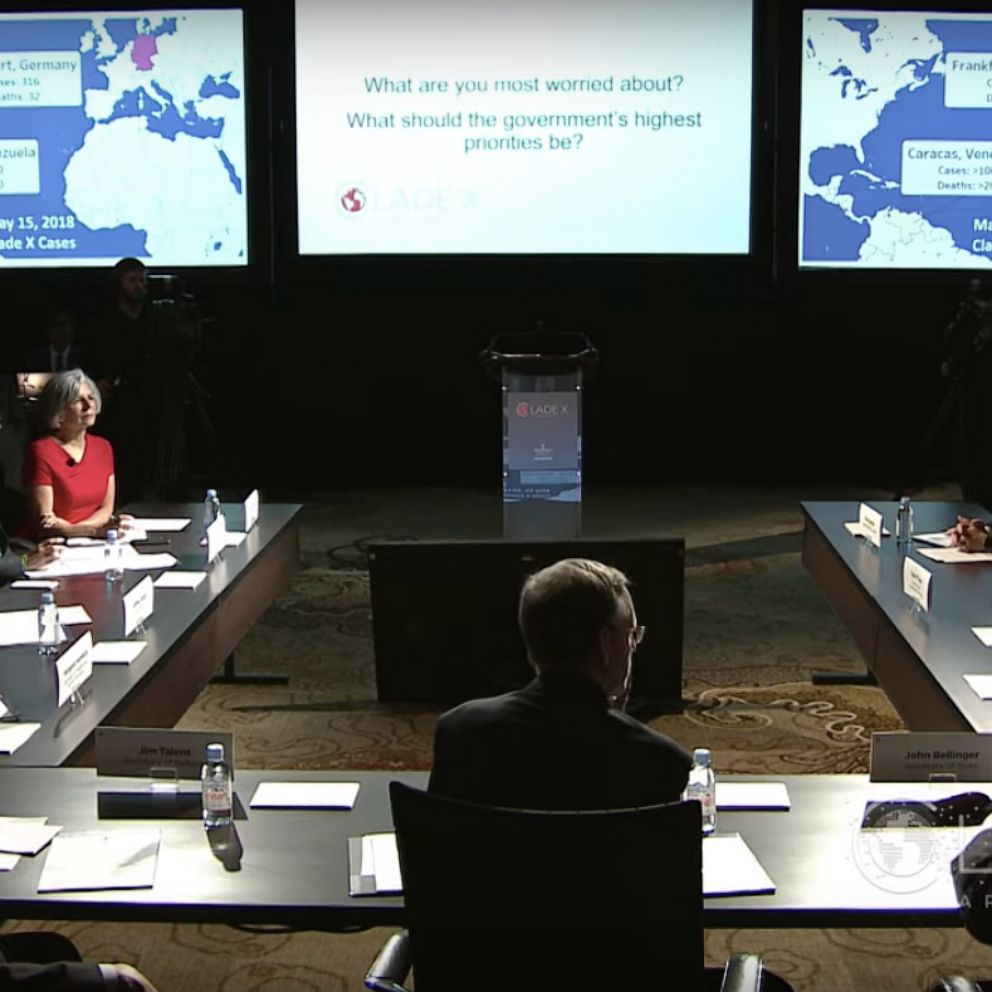US Army scientists are on the front lines in fight against coronavirus
An Army laboratory at Fort Detrick, Maryland, is helping to find a vaccine.
Some of the U.S. Army's top scientists are on the front lines in the battle against the novel coronavirus pandemic.
While the rest of the world is following health official guidelines and practicing social distancing to prevent them from catching the virus, research scientists at the U.S. Army Medical Institute of Infectious Diseases (USAMRIID) at Fort Detrick, Maryland, are literally hands-on with coronavirus -- on a daily basis.
Dressed in layers of protective gear, they work with live samples of the SARS-COV2 virus to produce purified versions that can be used by researchers to develop a vaccine, and also calibrate the millions of diagnostic tests now available that determine if someone has been infected with COVID-19.
ABC News was given rare access to the Fort Derick lab, to see the key role Army scientists are playing in the battle against the virus.
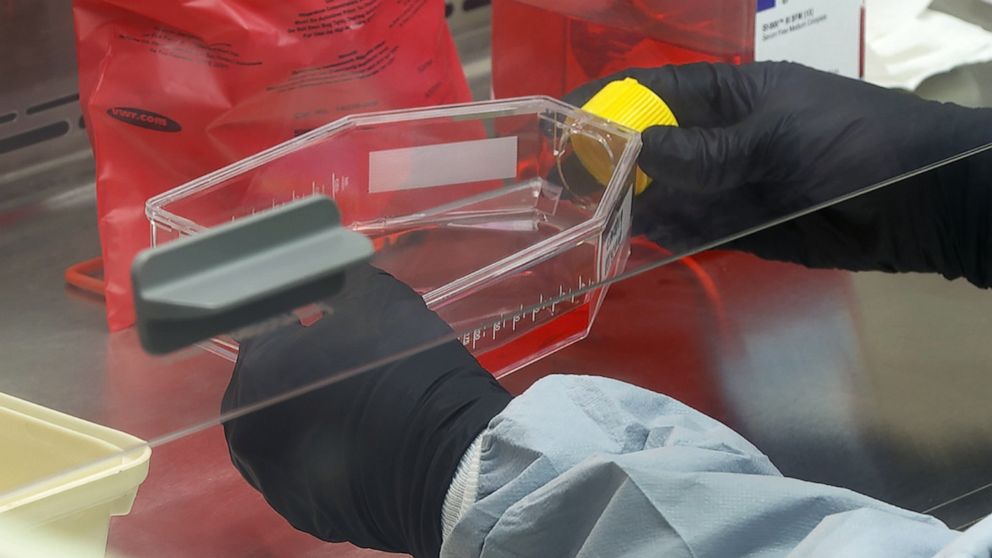
Known as a world leader in the research of infectious diseases, these scientists -- who have in the past worked on the deadly Ebola, SARS and Zika viruses -- are currently focused solely on the coronavirus.
"We don’t have a lot of time, because we’re in this fight people are dying," Army Secretary Ryan McCarthy told ABC News, following a tour of USAMRIID's facilities by the military branch's top leaders.
"These people are working every day and they're gonna beat this," he added. "I know it in my heart because they've done it before."
Army Chief of Staff James McConville echoed McCarthy's sentiments, even calling the scientists "heroes."
"This is the frontline of the battle against the coronavirus," McConville said. "And I would suggest that some of the people here are going to be the heroes that are going to help us defeat it."
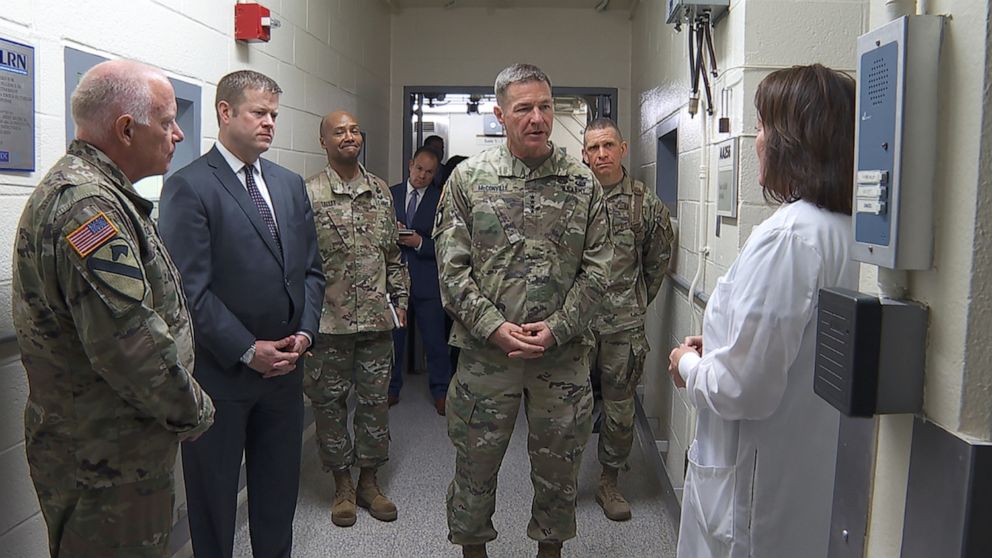
At USAMRIID, Army scientists work on a daily basis to multiply and purify the virus in a process that can take 2-3 weeks. They work with an original virus sample, provided by the Centers for Disease Control and Prevention, that was obtained from one of the first patients in the U.S. to be infected.
Because of the highly contagious nature of the virus, when the scientists handle the cultures, they work alone inside small lab rooms designed for one person.
To protect against infection, the researchers wear two sets of rubber gloves, a double layer of protective scrubs and a protective double shrouded head covering attached to a portable air respirator.
Other researchers at USAMRIID -- who work on the deadlier Ebola virus -- wear even more protective clothing including: specially designed rubber suits and head coverings that surround the scientist with positive pressure airflow.
If there is a breach in the suit, the positive pressure means air will flow out from the suit preventing the virus from entering it, the officials said.
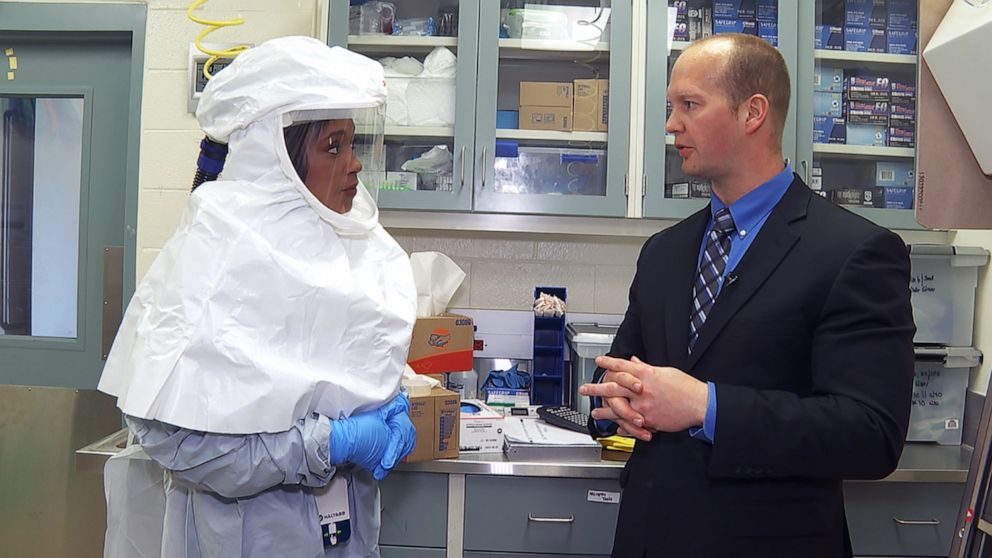
Since all viruses need human hosts in order to replicate, the coronavirus is mixed with human cells so that it can be cultured. That culture is then placed in an incubator where eventually the copies of the virus are pulled away from the human cells so they can be used for research.
McCarthy and McConville stressed during their visit how the work being done by Army scientists at the lab is key to the national effort to develop a vaccine.
"We've been here before, said McCarthy. "The US Army was critical in the SARS epidemic, the Zika virus, Ebola, and much of the work that they did helped drive towards antiviral antivirals as well as the vaccines so this is a road we've been down before."
"Just walk around this building," said McCarthy. "You see the little signs on the walls: Zika, SARS. They beat that. They beat Ebola."
McConville said the way to prevent the disease is through vaccination.
"And they’re working with the whole government, whole of industry here, aggressively testing the capabilities," he said.
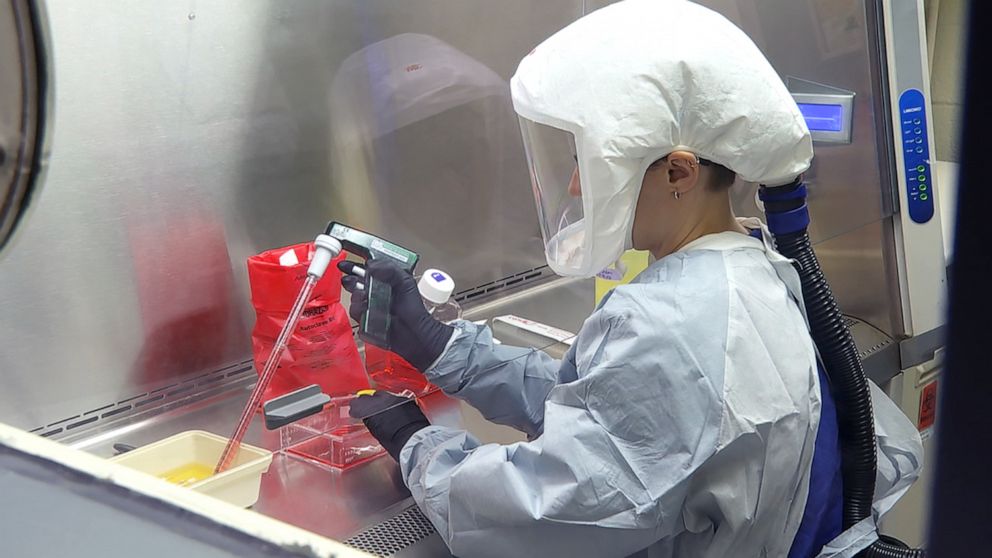
But developing a viable vaccine is a long three-phase process that could take between 12-18 months, as researchers first test whether a delivery system for the vaccine is safe to humans. The next phase would include testing of the vaccine on animals. The last phase is when the vaccine itself would be tested on humans.
"It is a long road, " acknowledged Dr. John Dye, the chief of viral immunology at USAMRIID. "Not only do you have to develop that vaccine but then you have to take that vaccine and put it into human trials to show that that vaccine is safe."
Five different vaccines are currently being worked on by researchers nationwide and will require approval by the Food and Drug Administration to show that they are safe.
Dye expects that over the three-phase development period, one of those vaccines could be the one that makes it through and gets approved for use by the general public.
In unprecedented fashion, testing on a possible vaccine is moving quickly. Just last week, the first phase of testing of the vaccine delivery system began, as a few volunteers were injected with experimental doses.
What to know about coronavirus:
- How it started and how to protect yourself: coronavirus explained
- What to do if you have symptoms: coronavirus symptoms
- Tracking the spread in the US and Worldwide: coronavirus map
As in the development of other vaccines, USAMRIID researchers will also play a key role in the next phase of testing when vaccines are tested in animals,
That's because the protocols that vaccine researchers will use in their testing on animals will all be developed by USAMRIID researchers, the officials said.
